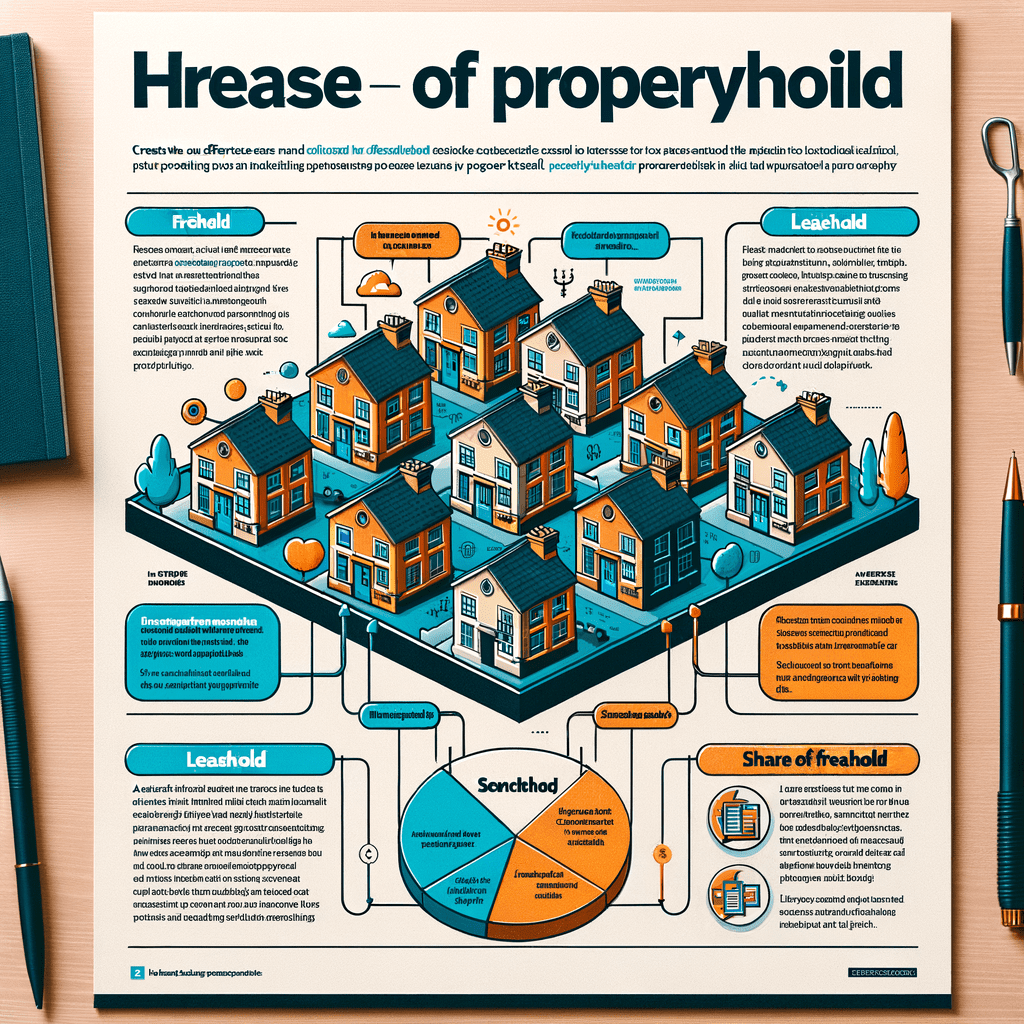GUIDE to Freehold, Leasehold, and Share of Freehold: Navigating Property Ownership in the UK
Understanding Property Ownership in the UK
When it comes to buying property in the UK, understanding the different types of ownership is crucial. The three primary forms of property ownership are freehold, leasehold, and share of freehold. Each comes with its own set of rights, responsibilities, and potential pitfalls. This guide will help you navigate these complexities, ensuring you make an informed decision that aligns with your long-term goals.
Freehold: Complete Ownership
What is Freehold?
Freehold ownership means you own the property and the land it stands on outright. This is the most straightforward form of property ownership and is often preferred by buyers for its simplicity and control.
Advantages of Freehold
- Full Control: As a freeholder, you have complete control over your property. You can make alterations, extensions, or renovations without needing permission from a landlord.
- No Ground Rent: Unlike leasehold properties, freeholders do not have to pay ground rent or service charges.
- Long-Term Security: Freehold ownership provides long-term security as there is no lease to expire.
Disadvantages of Freehold
- Higher Initial Cost: Freehold properties tend to be more expensive than leasehold properties.
- Maintenance Responsibility: As a freeholder, you are responsible for all maintenance and repairs, which can be costly.
Considerations for Freehold Buyers
- Survey and Valuation: Always conduct a thorough survey and valuation to identify any potential issues with the property.
- Legal Checks: Ensure there are no restrictive covenants or easements that could affect your use of the property.
- Future Development: Consider the potential for future development or extension, and check local planning regulations.
Leasehold: Time-Limited Ownership
What is Leasehold?
Leasehold ownership means you own the property for a set period, as specified in the lease agreement, but not the land it stands on. The land is owned by a freeholder, also known as the landlord.
Advantages of Leasehold
- Lower Initial Cost: Leasehold properties are often cheaper to buy than freehold properties.
- Shared Maintenance: Maintenance and repair costs are typically shared among leaseholders, reducing individual financial burden.
- Managed Services: Many leasehold properties, especially flats, come with managed services such as cleaning, security, and communal area maintenance.
Disadvantages of Leasehold
- Lease Expiry: The value of a leasehold property can decrease as the lease term shortens. Extending the lease can be expensive and complicated.
- Ground Rent and Service Charges: Leaseholders must pay ground rent and service charges, which can increase over time.
- Limited Control: Leaseholders need permission from the freeholder for significant alterations or subletting.
Considerations for Leasehold Buyers
- Lease Length: Check the remaining term of the lease. A lease with less than 80 years remaining can be problematic and costly to extend.
- Service Charges and Ground Rent: Review the service charges and ground rent to understand the ongoing costs.
- Lease Terms: Carefully read the lease terms to understand your rights and obligations, including any restrictions on property use or alterations.
- Freeholder Relationship: Investigate the reputation of the freeholder and managing agent to ensure they are responsive and fair.
Share of Freehold: A Hybrid Approach
What is Share of Freehold?
Share of freehold is a hybrid form of ownership where leaseholders collectively own the freehold of the property. This is common in blocks of flats where the leaseholders form a company to purchase the freehold.
Advantages of Share of Freehold
- Greater Control: Leaseholders have more control over the management and maintenance of the property.
- Lease Extension: Extending the lease is usually simpler and cheaper, as the leaseholders are also the freeholders.
- Potential Cost Savings: Service charges and ground rent can be reduced or eliminated, leading to potential cost savings.
Disadvantages of Share of Freehold
- Collective Responsibility: All leaseholders share responsibility for the property, which can lead to disputes and complications.
- Management Challenges: Effective management requires cooperation and coordination among all leaseholders, which can be challenging.
- Initial Cost: Purchasing a share of the freehold can be expensive, especially if the freehold is acquired after the initial property purchase.
Considerations for Share of Freehold Buyers
- Legal Structure: Understand the

